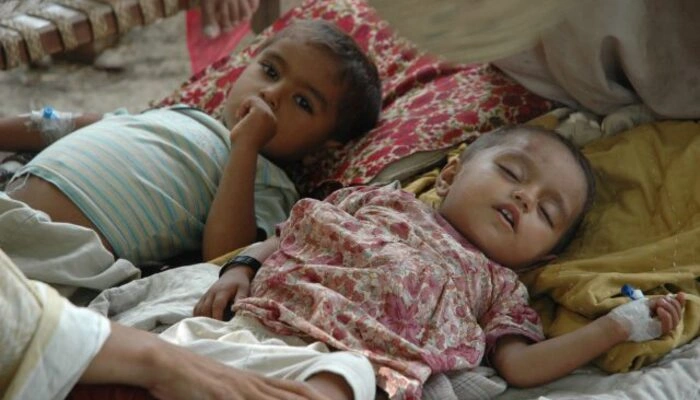
Balochistan has witnessed a remarkable 34 to 40 percent decline in malaria cases this year, thanks to strengthened preventive measures and coordinated efforts. Medical experts shared this encouraging update during the annual review meeting of the Malaria Control Program in Quetta, emphasizing the importance of sustained initiatives to combat this vector-borne disease.
Collaborative Efforts Drive Progress
The meeting, held at the Institute of Public Health, brought together representatives from CMU Islamabad, Indus Hospital, NRSP Nasirabad, BRSP, district health officers, and monitoring officers. These stakeholders reviewed the progress made in malaria control and outlined strategies for future interventions.
Experts highlighted that over 1,800 public and private healthcare centers across 36 districts in Balochistan are now providing free malaria diagnosis and treatment. This wide-reaching accessibility has been a key factor in reducing the disease burden.
Read: Pakistan Reports Over 20,000 Dengue Cases in 2024
Extensive Testing and Training Initiatives
From January to November 2024, more than 1.58 million malaria tests were conducted throughout Balochistan, resulting in the identification of 345,785 confirmed cases. To improve case management, 600 healthcare workers from 25 districts received training in Rapid Diagnostic Testing (RDT) and effective case handling techniques.
This focus on capacity building has enabled healthcare providers to respond swiftly and effectively to malaria cases, ensuring timely treatment and reducing the risk of complications.
Distribution of Mosquito Nets
Preventive measures also played a critical role in controlling the spread of malaria. Approximately 2.4 million mosquito nets were distributed in 13 high-risk districts. These nets have helped protect vulnerable populations from mosquito bites, significantly reducing the incidence of malaria and other vector-borne diseases.
Success of Preventive Strategies
The decline in malaria cases compared to the previous year underscores the success of targeted interventions and collaborative strategies. Enhanced awareness campaigns, improved access to healthcare services, and coordinated efforts among government and private organizations have all contributed to this achievement.
Future Goals for Malaria Control
While the decline in cases is promising, medical experts emphasized the need for continued vigilance and investment in malaria control programs. Sustained efforts to train healthcare providers, distribute preventive tools, and enhance community engagement will be essential to achieve further progress.
Thus, by building on the successes of this year, Balochistan aims to set an example for other regions in the fight against malaria, paving the way for a healthier future.
Follow Day News on Google News, Instagram, YouTube, Facebook, Whats App, and TikTok for latest updates
